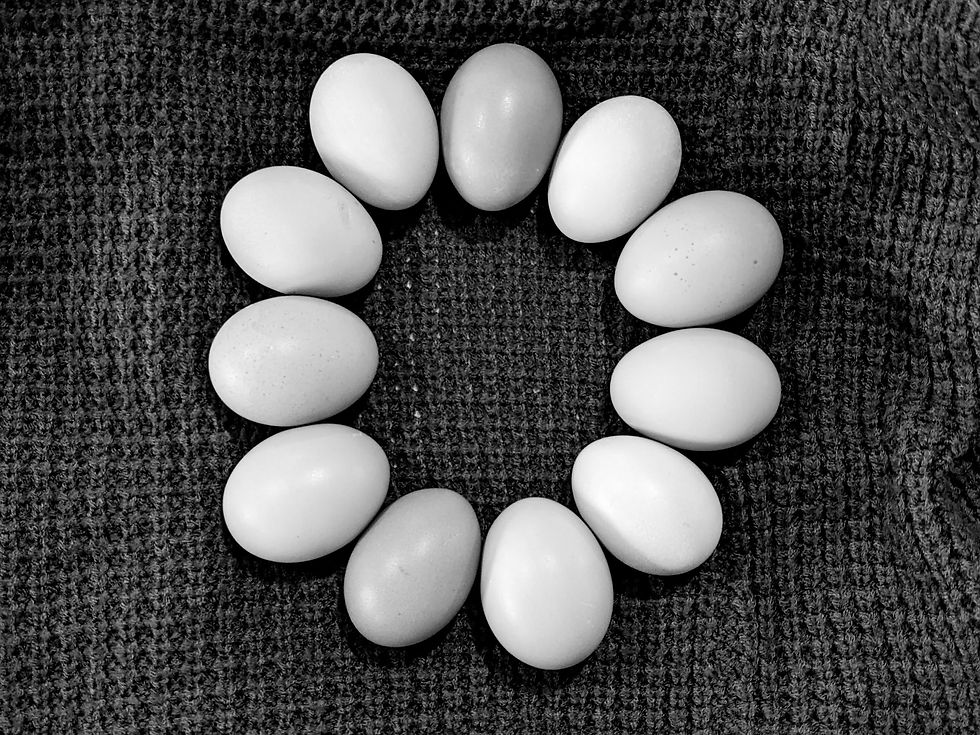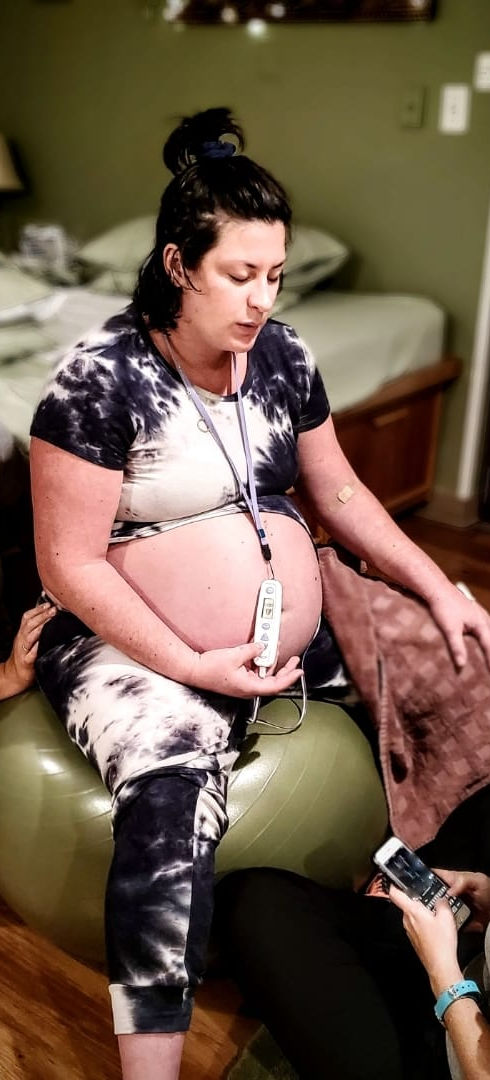
What is a Full Spectrum Doula?...
FS doulas are professionally trained care specialists who provide unbiased, compassionate, trauma-informed, and gender-affirming support & advocacy throughout preconception and/or voluntary childlessness, family planning, pregnancy, birth, and the immediate postpartum period. After carefully assessing a client's needs, a doula will create a personalized plan of support for the individual and/or family; supportive care typically includes before, during, and after any reproductive health event to include, but not limited to: onset of menarche/puberty, (trans)ition, infertility, conception, birth, postpartum, medical termination, loss, and onset of perimenopause and/or menopause.
What is an Indigenous Birthworker (Birthkeeper)?...
For generations, with evidence appearing as far back as the Paleo-Indian era, Indigenous birthkeepers, or sometimes interchangeably referred to as ‘birth passage overseers’ or ‘doulas’, have played an essential role in guarding the sacred gateway that the unborn must navigate before entering the physical realm; this ancient practice is still observed during many modern-day Indigenous births. Today, in modern society, these birthkeepers are making a significant comeback. Advocating for the use of traditional forms of medicine & reproductive support is critically essential to counter the systemic, medical-based racism & socioeconomic barriers that many Indigenous families disproportionately STILL face. Traditional Indigenous doulas, birth workers, and/or midwives are tribal members known for providing continuous, culturally appropriate support to, specifically, Indigenous women during pregnancy, birth, and the postpartum period. As times progress, however, so must the people: a more modern definition for the Indigenous birthkeeper, is an individual of Indigenous descent that is committed to providing cultural humility for ALL birthing individuals, especially those affiliated with BIPOC communities.
What is Birth Equity?...
Birth equity is the assurance of conditions for optimal birth experinces for all people, with a willingness to address any racial or social inequalities in a sustained effort. By focusing on a birthing individual's experience through preconception, pregnancy, birth, and immediate postpartum, safer, healthier conditions can be created for both them and their babies.
What is Reproductive Justice?...
Reproductive justice is the human right to maintain personal bodily autonomy, choose whether or not to reproduce, and parent the children we have in safe & sustainable communities. Social barriers which commonly deflect this all-inclusive practice include: race, class, traditions, religion, gender identity, and sexual orientation. To acheive reproductive justice, we, as a global community, must support efforts that aid access to crucial healthcare practices, to include: medically necessary abortion, comprehensive reproduction education, safe perinatal care, and adequate family leave options & laws, all while holding awareness of unfair power dyamics & maintaining a culturally humble perspective.
What is Cultural Humility?...
To convey cultural humility, one should be able to open up a conversation in a way that genuinely attempts to understand a person's identities related to race & ethnicity, gender, sexual orientation, socioeconomic status, education, social needs, etc. Culture is not homogenous; there is no 'default' culture. Instead, there is an infinite variety of customs, beliefs, traditions, habits, and other aspects of being human. Holding space for someone else requires cultural humility. Cultural competency is not enough- shifting the focus from competency to humility allows space for continued self-reflection, accountability, and lifelong learning.
What's the difference between a Postpartum Doula and a nanny?...
While childcare nannies play an essential role in many families' daily lives, most part-time caretakers lack a background in basic childcare education, CPR training, family-oriented care, and cultural humility. While extensive training and/or education is not required of a nanny to provide services, many familes, most of which have children with special needs, are progressively electing to seek out endorsed individuals with favorable credentials. With a broad scope of birthwork, mental health awareness, infant care, and social justice, PP doulas can offer families a peace of mind. Following the completion of training, most doulas strive to aquire CPR certification in hopes of expressing their amenability to provide the utmost care to their clients. Rather than focus on the child(ren) as a singularity as many nannies are expected to do, it is a PP doula's top priority to provide a sustainably supportive model of care for the ENTIRE family. We are here to help you thrive!

What's the difference between a Full Spectrum Doula and a Midwife?...
The most significant difference between a FS doula and a midwife, is that midwives provide medical-based care during pregnancy, birth, and the immediate postpartum period, while FS doulas provide emotional, evidence-based, informative, and physical supportive care during monumental moments or phases in an individual's life, to include: puberty, (trans)itioning, loss or medical termination, bereavement, pregnancy, birth, and the immediate postpartum period. While they are a highly endorsed, essential, and supportive necessity for holistic reproductive care, midwives, due to high-demand scheduling, are limited to the amount of time and attentiveness they're able to provide for individuals seeking support. Like most medical professionals, midwives are [usually] professionally licensed to deliver medical-based, informative care that is centered mainly around the individual seeking medical assistance; doulas, on the other hand, are extensively trained to provide specialized, on-call care to the entire family, including the unborn. Depending on the midwife, they may or may not be certified and/or licensed; a lay midwife, sometimes referred to interchangeably as a direct-entry midwife, is an individual with informal training through apprenticeships, mentoring, and self-guided study. These particular midwives do not have licenses or certifications from a recognized organization. Though a certification/medical degree isn't necessarily required in most states, many midwives, nowadays, choose to pursue a CNM or CPM degree in hopes of providing medically sound, holistic care to individuals in all 50 states (other countries may vary). Similar to midwifery, doula (birthwork) certification is not a requirement for providing families with supportive care in most areas (hospital requirements vary); many doulas find certification an unnecessary burden, that in return, hinders them from providing the essential advocacy needed for underrepresented minorites, BIPOC familes, LGBTQIA+ individuals, trauma survivers, etc. Certification is only considered a formality at this time, and furthermore, should NOT determine a doula's value, competency, or ability to provide the utmost care to their clients.
"Diversity is the spice of life." _Laura Cox, Lactation Educator & Counselor































